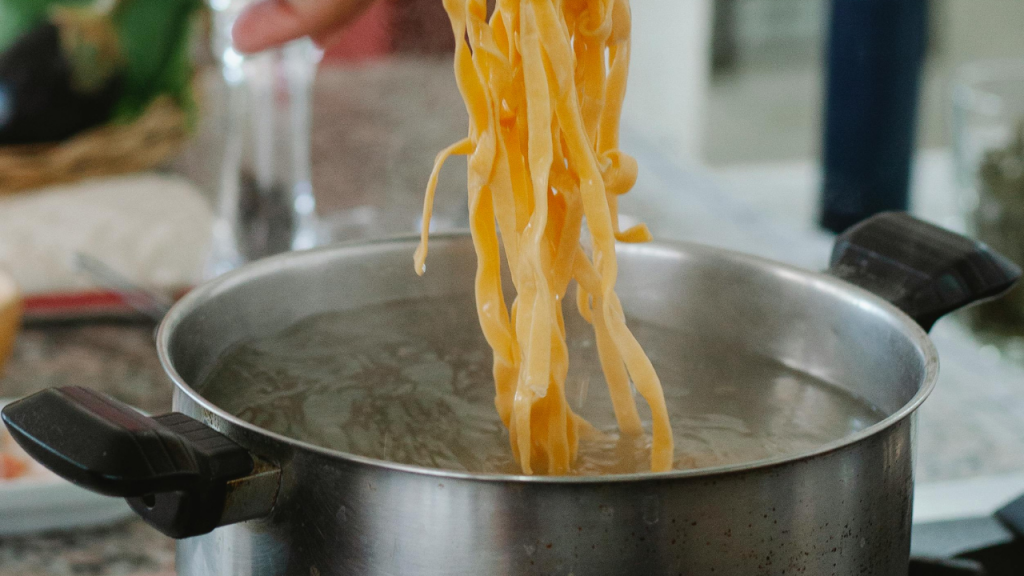As people become more invested in quality living and taking care of their bodies, experimentation takes us on new food journeys and methods. You might have come across the latest trend of water-based cooking methods.
Cooking with only water is a tradition in many cultures and homes. As people continue to explore this latest trend many questions unfold.
- Is cooking with water better than cooking with oil?
- If so, is it as flavourful?
- Most importantly, if you choose to still cook with oils is it healthy for you in the long term?
This article explores the differences between water-based cooking and oil cooking and the benefits of each.
The move to alternative cooking methods does not necessarily mean that cooking with oil is bad. It just showcases a positive mindset towards the importance of healthy living.
Water-based cooking:
Cooking with water has many benefits, especially with its low-calorie intake. Although the process can be quite long it is not a method that should be discarded. The exploration of these methods also allows for creativity and dabbling with different herbs and spices to create amazing new recipes and ideas, breaking the assumption that water-based cooking methods provide tasteless or bland meals.
When choosing to cook with water, there are many health benefits in terms of weight and calories. This approach to cooking is a good idea if you are looking at reducing the number of fats/oils you are consuming. Water-based cooking methods are good for your heart and can reduce the risk of certain heart diseases.
When cooking with water there is the added benefit of getting all the extra nutritional benefits from our dishes, but particularly our vegetables as the water allows for extra moisture. Below we list various water-based cooking options and their benefits.
Examples of water-based cooking:
Steaming
- If you are in and around the kitchen a lot, the concept of steaming is not unknown. The process of steaming involves placing a tightly sealed lid over your pan of choice, or elevating food that’s in a basket or bowl over small amounts of water that has been brought to a simmer or boil.
- Steaming foods is an excellent option when it comes to the preservation of nutrients and taste. When steaming our veggies they blossom with vibrant colours and extra juiciness.
Poaching
- Poaching is all about simmering. The key to poaching is being gentle. To prepare the food make sure it covered completely in water with a lid and is being brought to a gentle simmer. Food that is great to use this method for includes chicken, fish, fruit, and eggs.
Braising
- Braising is different from other water cooking methods as it requires a small bit of oil to get the process started. Braising is all about giving the meal a brown effect – a great method to use for meats. With a tiny amount of oil added to the meat for crisping, add water for the meat to simmer over low temperature in the pan ensuring tenderness and softness.
Boiling
- Another popular method for cooking with water especially for rice and soups. This method is excellent for nutrition because it completely absorbs any nutrients while cooking.
Oil-based cooking:
When it comes to preparing our meals in cooking oils the first thing that should come to mind is moderation. Oils are an essential part of our diets providing the body with essential fats. The problem that comes with cooking solely with oil, especially if it involves deep-frying, is that there can be a reduction in nutrients and oxidation gained from these oils. If the proper oils are used, the benefits include Omega 3 and 6 fatty acids, vitamin E and other fats namely monosaturated or polyunsaturated.
Cooking with oils is also a very traditional practice that gives foods a unique feel with their various flavours and textures adding giving us our fats and calories. This method is also so much faster, in comparison to water-based methods.
Essentially when it comes to choosing between water and oil-based cooking methods it’s all about choice and moderation. Although the trend of water-cooking is being explored, it does mean that oil cooking is no longer beneficial for us. Cooking with either method is dependent on the result you want to achieve and the dish. Many cooking oils contain components that are valuable to our health and water-based cooking also has its pros.
ALSO SEE:Understanding your cooking oils, smoking points and how to choose the right oil
Understanding your cooking oils, smoking points and how to choose the right oil
Feature image: Pexels

